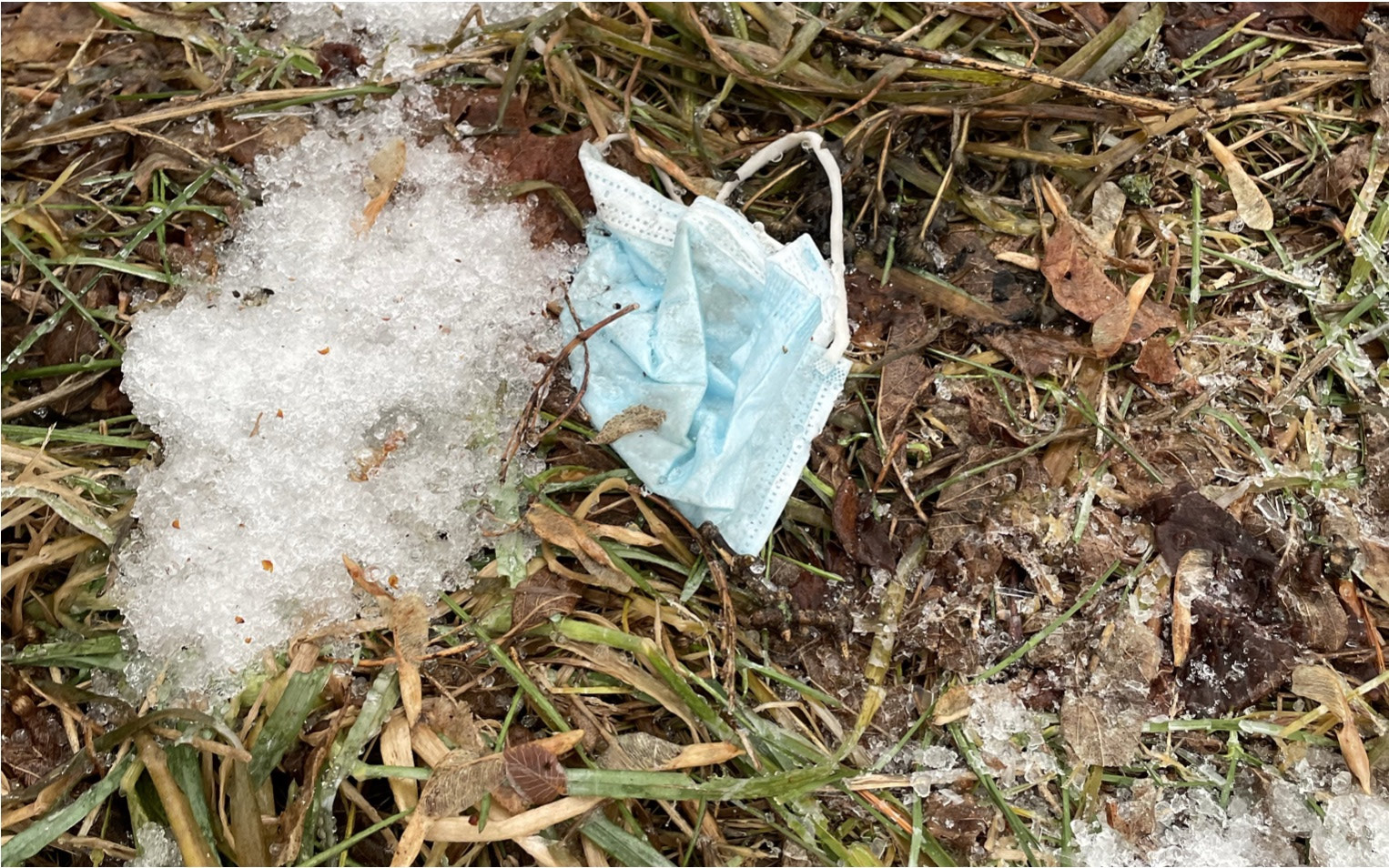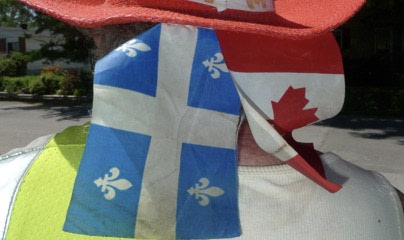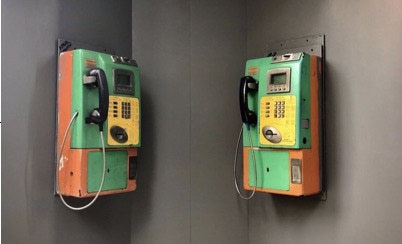C19: Facemasks in Pontiac’s ditches? Really?

A friend lent me an issue of “Landscape Trades: Canada’s Premier Horticultural Trade Publication”, suggesting that I read Anne Marie Van Nest’s article, “The Plastic Crisis.”
The article lists plastic items used in the horticultural industry: “plant pots and trays, nursery containers, bale wraps for growing substrates, plant sleeves, plant labels, IPM signs, truck liners, greenhouse film, plastic mulch, fertilizer bags, irrigation drip systems, and much more.”
Plastic everywhere
We’ve all been to shops to purchase broccoli that’s wrapped within an inch of its life in plastic. We’ve seen inventory at stores that’s shrink-wrapped in swathes of it. In the countryside, we’ve seen the “marshmallow farms” (as my goddaughter calls them) where bales of hay are wrapped in white plastic.
Covid
During this pandemic, many are lamenting about plastic bags again being promoted in shops, where we’ve not been permitted to bring our own multi-use containers to pack purchases.
Moreover, Facebook and other social-media platforms are showing pictures of discarded facemasks and gloves littering parking lots.
As a recent trend, I’ve noticed facemasks stuck on trees and tangled in grass along the Pontiac’s roads.
Can we please stop throwing contaminated goods into the countryside? Remember: we truly are all in this together, and together, we can examine our personal practices, and do a re-boot.
Recycling
We’ve heard lots of complaints regarding cross-contamination with recycling, where landfill such as pizza boxes with food stuck on them are erroneously recycled. It’s prudent for us all to reassess what we put into the blue bins.
And full disclosure: I’m at fault here too, occasionally putting plastic items into the recycling bin where honestly I’m not 100% sure they’re recyclable.
Writer Van Nest advised, “With single-stream recycling, resist the temptation to throw everything that might be recyclable into the bin. To avoid contamination, the Canadian Plastics Industry Association recommends, ‘When in doubt, leave it out.’”
However, I’d recommend something a bit different: Call your Municipality for latest rules on what is acceptable. And? Investigate this link which lists recyclables in Quebec: bit.ly/3mzBple
To my knowledge, clear plastic wrap cannot be recycled, so it gets landfilled. So, why use it? Well, even when we decide not to use it personally in our homes, we see it “everywhere”, wrapping that piece of broccoli in the grocery shop, to being used to shrink-wrap boxes of plastic bottles of water.
And we gardeners know that many products – from mulches to peat moss – are packaged in plastic.
Reuse system at Nesbitt’s Greenhouse
In Aylmer, Sylvia Nesbitt and her family operate Nesbitt’s Greenhouse and Nursery. On Thursday, September 17, I telephoned and asked whether they accept pots and trays for reuse.
“Yes. We reuse what we can. We are open so we can help unload the plastic pots from your car, or there’s a cart. We leave them in the sun for its decontamination, and then we bring them inside. And, we clean them before reusing them.”
Other nurseries that once accepted plastic pots and trays to reuse no longer do. Perhaps they’ll change if we call and ask if they’ll return to this procedure.
Being the change
Truly, we are in this together. So, thanks to my friend who encouraged me to revisit my personal practices. By working together, talking, and acting, we can all choose to live a bit more sustainably.
By talking about such issues, we inspire community appreciation and can further aspire to “the common good” – acting for others/our planet’s welfare which, de facto, includes our own personal welfare.
As for industries? As Van Nest reported, “Horticultural professionals agree on the urgency of solving the plastics problem. Will it come from grassroots efforts, new technology or a shift in global economics?”
So don’t be shy: question companies. Confirm what can be recycled.
And please: Stop throwing masks, gloves, coffee cups and other contaminated waste into the countryside. Why not use a reusable facemask, wash and wear it with pride?
Be the change. It’s not just a slogan.






